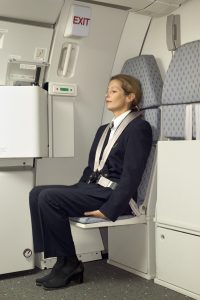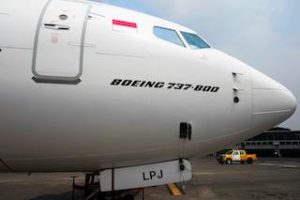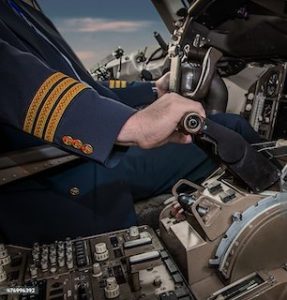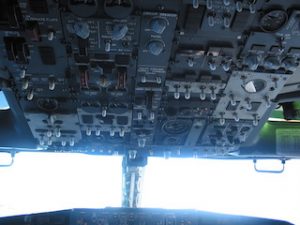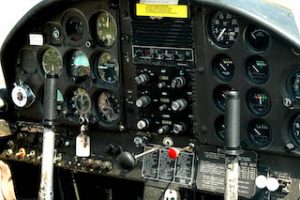Line Oriented Flight Training – LOFT – For Pilots
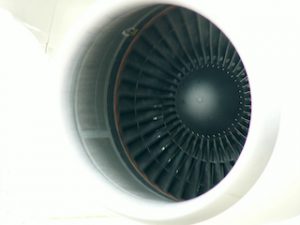 In the highly competitive aviation industry, career advancement for pilots depends on continuous skill development, adherence to safety standards, and operational excellence. Line oriented flight training plays a pivotal role in enhancing pilots’ career trajectories by providing realistic training scenarios and fostering a range of critical skills. This article explores the career advancement benefits of LOFT, highlighting how this specialised training contributes to professional growth, operational competence, and leadership development for pilots.
In the highly competitive aviation industry, career advancement for pilots depends on continuous skill development, adherence to safety standards, and operational excellence. Line oriented flight training plays a pivotal role in enhancing pilots’ career trajectories by providing realistic training scenarios and fostering a range of critical skills. This article explores the career advancement benefits of LOFT, highlighting how this specialised training contributes to professional growth, operational competence, and leadership development for pilots.
Line oriented flight training
Line oriented flight training is a training approach designed to simulate real-world flight scenarios, integrating normal, abnormal, and emergency situations into a comprehensive training environment. Unlike traditional flight training, which often focuses on specific maneuvers or technical skills, LOFT emphasizes operational proficiency and decision-making in a realistic context. This training method aims to prepare pilots for the complexities of actual flight operations, ensuring they are equipped to handle diverse situations effectively.
Career advancement benefits of LOFT for pilots
1) Enhanced operational competence
LOFT significantly enhances a pilot’s operational competence by providing exposure to a wide range of scenarios that are encountered in real-world flight operations.
Realistic scenario training
- Handling complex situations: LOFT scenarios simulate real-life challenges such as adverse weather conditions, air traffic control directives, and technical malfunctions. This exposure helps pilots develop the skills necessary to handle complex situations with confidence.
- Decision-making skills: Pilots practice making critical decisions under pressure, which improves their ability to analyze situations and choose the best course of action. This is crucial for ensuring safety and efficiency during actual flights.
Comprehensive flight experience
- Integration of skills: LOFT integrates various aspects of flight operations, including taxiing, take-off, cruising, and landing, into a single training session. This holistic approach helps pilots understand how different elements of flight interact and affect performance.
- Adaptability: By practicing in a variety of scenarios, pilots become more adaptable and better prepared to handle unexpected events, which is a valuable trait for career progression.
2) Improved safety and risk management
Safety is paramount in aviation, and LOFT plays a crucial role in enhancing pilots’ ability to manage risks effectively.
Adherence to standard operating procedures
- Procedure reinforcement: LOFT training emphasises adherence to standard operating procedures, ensuring that pilots understand and follow established safety protocols. This reinforces safe practices and reduces the likelihood of errors.
- Error management: Pilots learn to recognise and correct mistakes in a controlled environment, which helps them develop better risk management skills and enhances their ability to prevent accidents.
Emergency preparedness
- Simulated emergencies: LOFT includes emergency scenarios that prepare pilots to respond to critical situations calmly and efficiently. This preparation is crucial for maintaining safety during real emergencies.
- Crisis management: Training in LOFT helps pilots develop effective crisis management skills, which are essential for handling high-pressure situations and making timely, informed decisions.
3) Leadership and teamwork development
Effective leadership and teamwork are essential for career advancement in aviation, and LOFT contributes to the development of these skills.
Crew resource management
- Role clarity: LOFT emphasises crew resource management, which involves understanding and performing the roles of both the pilot in command and the first officer. This clarity improves communication and coordination among crew members.
- Collaborative skills: Pilots practice working together to achieve common goals, enhancing their ability to collaborate effectively with colleagues and other stakeholders.
Leadership abilities
- Decision-Making Authority:** Pilots develop leadership qualities by making critical decisions and managing complex situations during LOFT scenarios. This experience prepares them for higher-level responsibilities and roles.
- Mentoring Opportunities:** Experienced pilots who excel in LOFT may have opportunities to mentor less experienced colleagues, further advancing their leadership skills and career prospects.
4) Career progression and opportunities
LOFT training provides a competitive edge in career progression by demonstrating a pilot’s commitment to excellence and continuous improvement.
Qualifications for advanced roles
- Promotion potential: Mastery of LOFT scenarios and skills can qualify pilots for advanced roles, such as captain positions or specialised flight operations. Employers value pilots who have demonstrated proficiency in handling diverse flight scenarios.
- Certification and endorsements: Successful completion of LOFT may be a requirement or a significant advantage for obtaining additional certifications and endorsements, which can open doors to new career opportunities.
Enhanced marketability
- Resume strength: Pilots who undergo LOFT training can highlight their experience and skills in handling complex scenarios on their resumes, making them more attractive candidates for employment and promotion.
- Industry recognition: LOFT-trained pilots are often recognised for their advanced skills and commitment to safety, enhancing their reputation within the aviation industry.
5) Ongoing professional development
Continuous professional development is crucial for career advancement, and LOFT supports this by providing opportunities for ongoing learning and improvement.
Continuous learning
- Skill reinforcement: LOFT training reinforces essential skills and knowledge, ensuring that pilots stay current with best practices and industry standards.
- Adaptation to changes: Pilots can adapt to changes in regulations, technology, and operational procedures by participating in LOFT, maintaining their relevance in a rapidly evolving field.
Feedback and Improvement**
- Constructive feedback: Post-simulation debriefings provide pilots with valuable feedback on their performance, helping them identify areas for improvement and set goals for further development.
- Performance tracking: Regular participation in LOFT allows pilots to track their progress over time, ensuring continuous growth and development in their careers.
Advance your career with LOFT
Line oriented flight training offers substantial career advancement benefits for pilots by enhancing operational competence, improving safety and risk management, developing leadership and teamwork skills, and supporting ongoing professional development. Through realistic scenario training and comprehensive skill reinforcement, LOFT prepares pilots for the challenges of modern aviation and positions them for success in their careers. By embracing LOFT, pilots not only enhance their immediate performance but also pave the way for future growth and opportunities within the aviation industry.


